How do you view yourself as an educator? That’s right. You are an educator, even if your classroom is your living room or your kitchen. I was a public school teacher for five years, and I considered myself an educator. Now I am an educator of my own children in our home. I just happen to be Mom, too! My most important and precious role is as Mom, but I do enjoy teaching and learning with my children, too.
I am able to educate my children more fully here at home than I was ever able to educate the children in my first grade classes at school.
I can influence them and their attitudes and behavior all through the day every day – and sometimes through the night!
But back to my original question – How do you view yourself as an educator?
I view myself as a “facilitator of learning”. This is a concept I learned about in teaching classes I took in college. I liked the idea of gathering resources for students and letting them interact with them and learn and discover a lot on their own. It seemed like a good way for children to learn thoroughly and enjoyably.
I have put these ideas into practice for many years now and have found them to be very effective.
When I first read about Charlotte Mason’s philosophy, I saw a correlation between what she called “self-education” and my belief in letting children interact with books, resources, manipulatives, etc. and discover what they could from them. Of course, I guide them as needed in using resources in respectful, appropriate ways, and I stay available to answer questions and to comment on their creations or to help them make connections, but I try to let them do a lot of exploring on their own.
One of the most vital aspects of Charlotte Mason’s philosophy is that our minds feed on ideas like our bodies feed on food. She taught that we learn mind to mind. She maintained that we should let children interact with “great” minds, as in great authors and inventors and leaders whose thoughts, ideas and stories are found in books. When we give too much information and interrupt their learning by asking too many questions, we interfere with their process of exploring and do more damage than good. By interjecting our own thoughts or trying to direct the child too much, we may turn off the natural curiosity that makes a child want to learn.
I believe the best, most thorough learning occurs when children want to know something, and then they seek to find the answer or experiment to see what will happen. Such learning experiences can be messy at times. As they get older, children will learn a lot more from the books that we provide for them. I believe we should provide a steady diet of good books for them to consume.
Charlotte was very concerned about order and abundant provision of good books. My main concern is abundant provision! I read many good books aloud to all of my children, even the older ones. My oldest son is 22 and still listens to the books that I read during “together school”. I read books about the great heroes of the faith, classics, books by George MacDonald, biographies and historical fiction. It is a great bonding activity for the family as well as feeding the minds of my children with great ideas.
You can read about Charlotte’s ideas about “self-education” in her book called “A Philosophy of Education” which is Volume 6 of The Original Homeschooling Series, which can be found here at Ambleside Online.
From the introduction on page 16, there is a quote that I like. “The mind can know nothing save what it can produce in the form of an answer to a question put to the mind by itself.” I allow lots of freedom for my children to mull over and think about what we are reading. Sometimes I will initiate a discussion. Sometimes I can’t hold back a comment on a scene or event in a story or an idea that is put forth, but, for the most part, I try to let them digest the material and process it themselves. Many times I use the narrating technique as a way to recap the story from the last time we read, so that they are ready for the new chapter. I have a child tell us what happened the last time we read. I don’t call it narration, but that’s what it is. Narration is another important aspect of the Charlotte Mason method.
Through providing lots of good books and resources (maps, charts, magazines, manipulatives, videos, documentaries, and hands-on activities), I believe that I am providing a means of learning through which my children may learn and assimilate knowledge thoroughly. They will always remember it, because they own it. They have interacted with the knowledge and information themselves and have pursued the answers to their own questions.
Therefore, I see myself as a facilitator of learning. And I love my job!
This post is included in the Charlotte Mason Blog Carnival. Go on over there and see all of the wonderful, encouraging posts by other awesome Charlotte Mason enthusiasts.
And it is included in the Beautiful Family Friday Link-Up Holy Spirit-Led Homeschooling

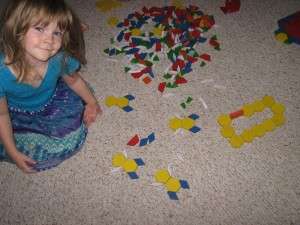
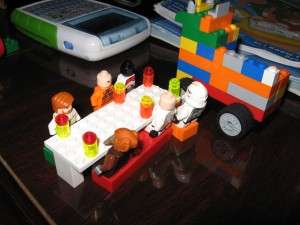
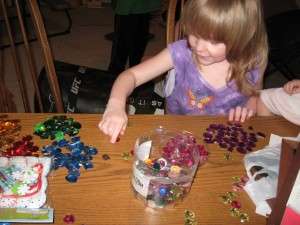
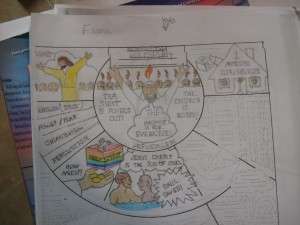
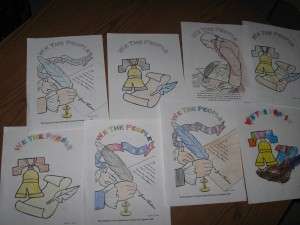
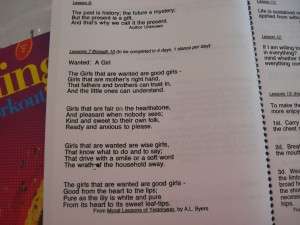
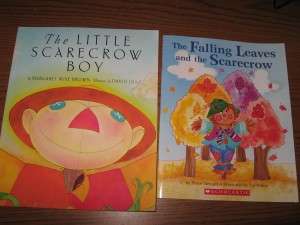






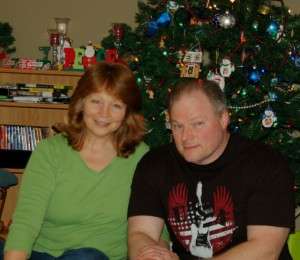

 "Oh that God would give every mother a vision of the glory and splendor of the work that is given to her when a babe is placed in her bosom to be nursed and trained! Could she have but one glimpse in to the future of that life as it reaches on into eternity; could she look into its soul to see its possibilities; could she be made to understand her own personal responsibility for the training of this child, for the development of its life, and for its destiny,--she would see that in all God's world there is no other work so noble and so worthy of her best powers, and she would commit to no other's hands the sacred and holy trust given to her." -JR Miller
"Oh that God would give every mother a vision of the glory and splendor of the work that is given to her when a babe is placed in her bosom to be nursed and trained! Could she have but one glimpse in to the future of that life as it reaches on into eternity; could she look into its soul to see its possibilities; could she be made to understand her own personal responsibility for the training of this child, for the development of its life, and for its destiny,--she would see that in all God's world there is no other work so noble and so worthy of her best powers, and she would commit to no other's hands the sacred and holy trust given to her." -JR Miller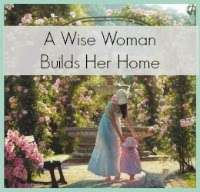
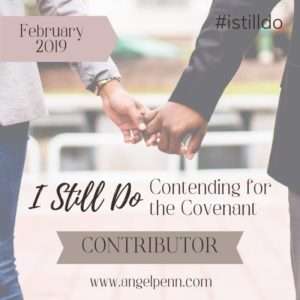


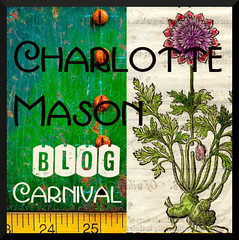


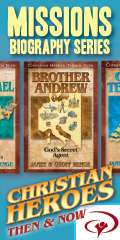
Thanks Penny- I never thought of myself as a facilitator of learning.Your words encouraged me. Great post- love the pictures.